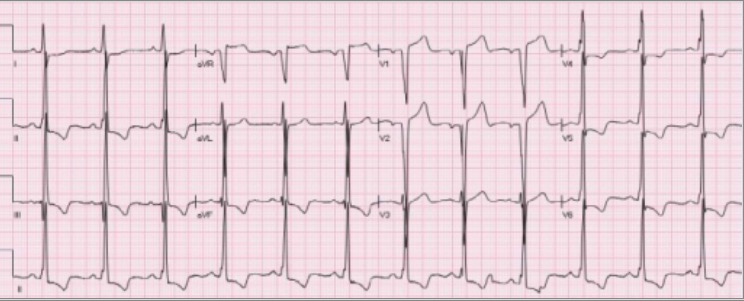Playlist
Show Playlist
Hide Playlist
Other Forms of Therapy – Hypertension
-
Slides 07 Cardiology Alpert EN.pdf
-
Reference List Cardiology.pdf
-
Download Lecture Overview
00:00 Now, there are a number of other medicines. I have some medicines that when patients aren’t controlled with the simpler ones we’ve mentioned. That is, thiazide diuretics, ACE inhibitors, angiotensin receptor blockers, calcium blockers. When the patient still is hypertensive despite using those drugs or if they couldn’t tolerate those drugs then I come to some third line drugs. Minoxidil is a very potent vasodilator, it almost always works. There’s a medicine called clonidine which works in the central nervous system to sort of, if you will, turn down the thermostat of… of blood pressure control and there are some peripheral drugs that block the effect of the sympathetic nervous system on the small blood vessels and thereby decrease peripheral vascular resistance, so called alpha blockers. These are all third line drugs. 00:53 First line drugs, thiazides, ACE inhibitors, angiotensin receptor blocker. Second line drugs, calcium blockers, Beta Blockers. Third line drugs, the ones you see here on this slide. As I mentioned early on in the lecture, it’s rare to control an individual’s blood pressure with just one anti-hypertensive drug. It usually requires two or three. And as I mentioned, when I was younger and in training, we were told, “Take one drug and push it to the maximum dose and then if you'd had... don't control the blood pressure, start a second drug.” Well, like so many things in medicine, it seemed like a good idea at the time, but it was a bad idea. It markedly increased side effects and patients often stop their drugs because of side effects. 01:37 In fact, what we have found is much more effective is to use smaller dose… doses of several drugs. Two or even three drugs, starting one drug at a small dose, adding a second drug at a small dose and a third drug, until we get control of the blood pressure. 01:51 And of course, reducing the dose if we have side effects and introducing a third or even sometimes a fourth drug to get good control over blood pressure with minimal side effects. 02:02 So, this step ladder that you see here, this staircase is really showing you the different levels for controlling blood pressure. The drugs that we start with first, the second line drugs, for… for not good control with the first line drugs and then to the higher levels, all the way up. In other words, you keep increasing the efficacy of the program by increasing the number of drugs and slightly increasing the dose. But, you don’t try and push the maximum dose right from the very beginning which we used to do in the old days and it doesn’t work. Now, you can see here, what we’ve listed here are a number of the double-blind randomized controlled trials. As you know, they're all listed by acronyms that is just the initials there on left hand side of the slide. These are large randomized controlled trials with thousands of patients and what the colored bar show you, is how many drugs on average it took to control the blood pressure in these various trials. And you can see, the top trial, it took two and a half drugs to control, on average, to control blood pressure, but in the later trials down below, it took three or four drugs. So, that... I said that from the very beginning, one drug usually doesn’t control blood pressure. It usually requires two or three. We start with lower doses of each of the drugs and… and we almost always get good control of blood pressure. I see a number of patients all the time who are referred to me by primary care doctors because their primary care doctors said, “It’s impossible to control your blood pressure.” I have never seen a patient that I couldn’t control their blood pressure by manipulating the drugs appropriately. So… but, it takes some work with a patient that’s very challenging. Fortunately, most patients are not challenging. 03:45 Couple of drugs at modest doses and the patients do beautifully and their blood pressure’s 120, 130 over 70 to 80. Well, that brings us to the end of lecture 14 and the end of the series, “Introduction to Cardiology”. I hope you’ve learned a lot. If you still have questions, you can find my e-mail address at the end of all the editorials that I write for the American Journal of Medicine. That’s the journal that I’m the Editor-In-Chief of and I’ll be happy to answer your questions by e-mail. 04:12 Thanks very much for participating in this educational program.
About the Lecture
The lecture Other Forms of Therapy – Hypertension by Joseph Alpert, MD is from the course Cardiac Diseases.
Included Quiz Questions
A 21-year-old overweight university student is referred to you for evaluation of high blood pressure found on screening at a local mall. The blood pressure reading there was 145/90 mm Hg. What would be your approach to this patient? Select all that apply
- Obtain additional blood pressure measurements to confirm the diagnosis
- Suggest regular exercise and modest weight loss
- Reassure the patient that their blood pressure is within normal range
- Start two anti-hypertensive drugs
A 45-year-old man comes to you for a routine examination. He has no complaints and feels well. He has no history of a serious illness and takes no medications. He has an extensive family history of hypertension with complications of stroke and ischemic heart disease in some of his relatives in their 40’s and 50’s. He also has high blood pressure with readings often in excess of 160/100 mm Hg. What is your next step regarding the management of his blood pressure?
- Discuss the risks of persistently elevated blood pressure with the patient, advise on lifestyle modifications, and initiate pharmacological therapy.
- Give advice on lifestyle modifications only and re-evaluate in six months.
- Congratulate the patient that his blood pressure is normal, but monitor him closely given his family history.
- Advise the patient on needing a prophylactic coronary bypass operation.
Which of the following is NOT a first-line drug choice for hypertension?
- Minoxidil
- Angiotensin receptor blockers
- Thiazide diuretics
- Angiotensin-converting enzyme inhibitors
Customer reviews
5,0 of 5 stars
| 5 Stars |
|
8 |
| 4 Stars |
|
0 |
| 3 Stars |
|
0 |
| 2 Stars |
|
0 |
| 1 Star |
|
0 |
Excellent review! These are series reallly completes and easy to understand
I would recommend these series of lectures to anyone interested in health care! Dr. Joseph Alpert is a great teacher, I feel very lucky for being able to listen to him.
THANKS you, teacher. Those were Great lectures! I'm very happy with this course
Love this course so much. You make the cardiology much easier to understand. Thanks a lot Dr. Alpert.




